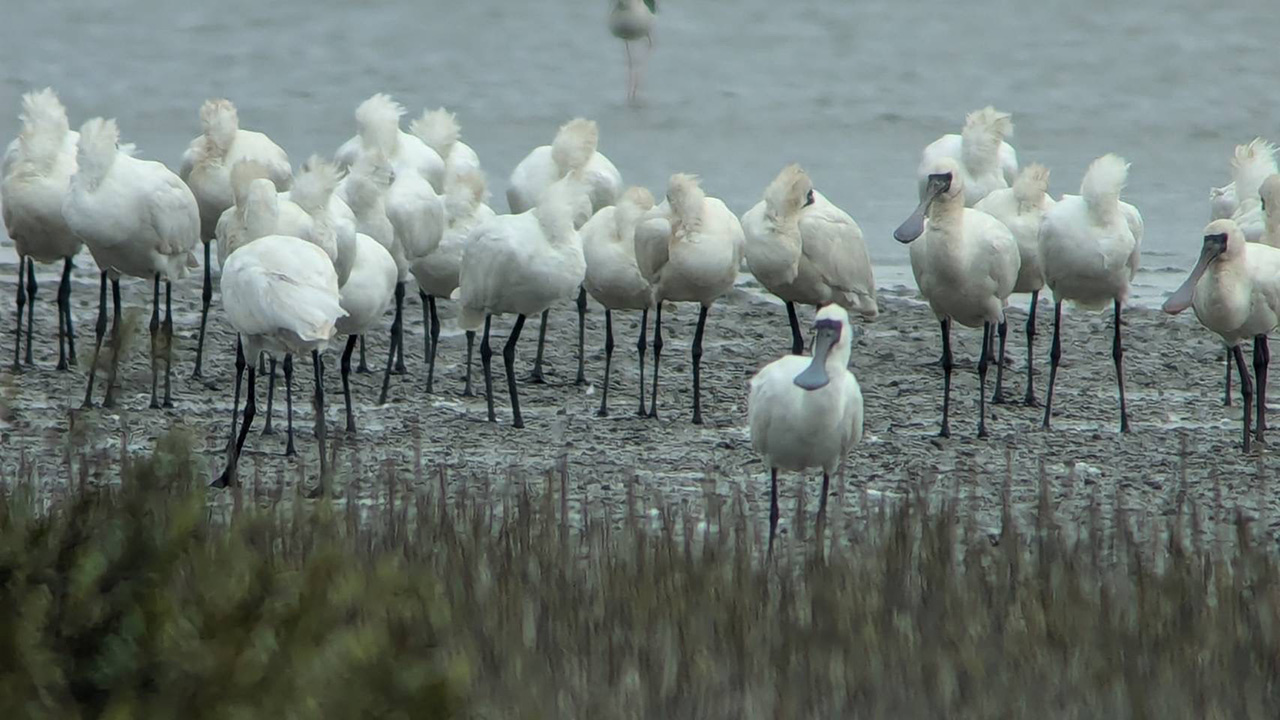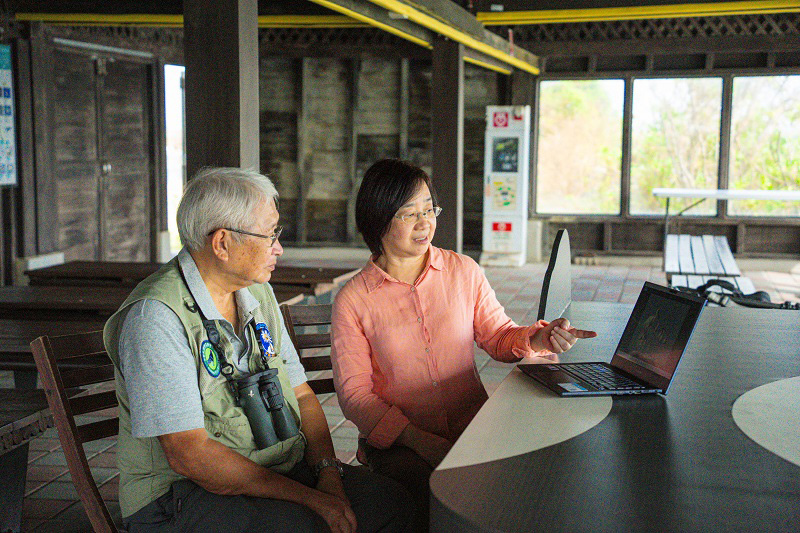R&D Focus
AI Technology for Spoonbill Conservation

ITRI developed an AI bird recognition mobile solution to provide real-time, round-the-clock recognition services in the black-faced spoonbill’s habitat.
The black-faced spoonbill (Platalea minor), an endangered species on the IUCN Red List, is a vital environmental indicator. Each year, over 60% of the global population migrates to Taiwan’s wetlands, staying from September to April. ITRI partnered with Chunghwa Telecom to develop the AI Image Recognition Technology for Black-faced Spoonbill, Taiwan’s first AI-powered image recognition bird monitoring system.
Traditionally, Taiwan’s black-faced spoonbill monitoring has relied on satellite tracking and visual observation to study habitats and migration. These methods are hampered by inconsistent funding and outdated technology, impacting accuracy and efficiency. Furthermore, environmental changes and human disturbance compromise the reliability of monitoring results. While essential, this approach is labor-intensive and limited by time and weather.

The image recognition technology incorporates multiple AI models, bringing unprecedented efficiency and accuracy to black-faced spoonbill monitoring.
The AI Image Recognition Technology for Black-faced Spoonbill automates spoonbill recognition, allowing for accurate and efficient counting of the birds within the habitat, overcoming challenges like overlapping images obstructing recognition. According to Jeff Lin, ITRI Vice President and General Director of the Industry, Science and Technology International Strategy Center, the system reflects the potential of technology to drive conservation and underscores corporate responsibility in tackling climate change and biodiversity loss. With such AI application tools to reduce the burden on manual fieldwork, Taiwan is setting a new standard for innovative conservation efforts.
With a decade of experience in refining AI object detection, ITRI began training its system to monitor spoonbills in June 2024. By September, it had achieved an 86% accuracy rate and was ready for deployment, offering 24/7 real-time recognition of individual birds within spoonbill habitats. This breakthrough reduces reliance on manual observation and provides unprecedented precision.

ITRI’s technology is expected to reduce reliance on manual observation and support broader conservation projects.
Beyond spoonbill conservation, the AI image recognition technology is being further refined to tackle issues like low light and water reflections. This will allow its monitoring capabilities to expand to other endangered species and support broader conservation projects. As climate change and biodiversity challenges intensify, real-time ecological data and cross-sector collaboration between technology innovation and conservation efforts are critical for creating a sustainable future.